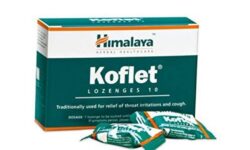Though the Central government has tightened norms for registration of clinical trials with human participants in recent months, many clinical research organisations (CROs) in the country continue to blatantly violate regulations to recruit healthy volunteers (HVs) for bioavailability and bioequivalent (BA/BE) studies, say researchers.
The rules for registration of clinical trials in India were made more rigorous in April this year. As per the new rules, Clinical Trials Registry of India (CTRI), an online public record system set up by the Indian Council of Medical Research (ICMR), will register a human trial only before the enrollment of the first patient. The CTRI registration is mandatory and the laws are made more stringent to weed out malpractices. However, these measures fail to deter CROs from deviating from fundamental biomedical research guidelines and participants belonging to low income groups take part in these experiments due to financial compulsions, say researchers.
The health ministry amended the Drugs and Cosmetics Rules 2017 to make BA/BE studies compulsory for certain classes of generic drugs manufactured in India. After the amendment, the number of pharmaceutical companies approaching the regulators to get approval for such studies has increased manifold.
But clinical trials are a relatively new research segment in India and the country’s contribution to the field remains low. Only 1.4 per cent of the world’s clinical trials take place in India, according to data available in the public domain, despite the country’s disease burden of 20 per cent. As a result, research efforts and regulations in this field are also in its nascent stage. A 2014 study conducted by two Indian researchers throws light on the role of middlemen and gives an insight into the remuneration negotiation process. “Our report was based on the records collected from 50 HVs participating in a BA/BE study conducted by a CRO in Hyderabad. The profile of the HVs showed that all 50 participants belonged to the low income group. Though they initially gave the impression that their participation in the trials was for the ‘larger good’ of society, when probed further, they revealed that they had participated due to insufficient income and unstable jobs,” Shilpa Krishna, a research scholar at the University of Hyderabad and a co-author of the report.
“None of the 50 HVs knew anything about the study in which they were participating. It was surprising that even the volunteers who were graduates did not remember any of the details of the trial,” she noted.
BE studies are conducted to establish that two medicines, usually the original patented drug and a generic version, have the same biological equivalence, which means they work the same way and are interchangeable. The study is crucial for ensuring the safety and tolerability of generics against corresponding innovator drugs, but can lead to adverse side effects. Recently, the Central Drugs Standard Control Organisation has come out with a draft guidance document to streamline the approval process for such studies with human participants.
Despite these efforts from authorities, nothing has changed on the ground. According to researchers, the volunteers are more concerned about the issue of payment than their health. And in most cases, the amount mentioned or agreed upon in the ethics committee protocol document does not match the amount paid to the volunteers as research centres frequently negotiate the rate with HVs. The HVs also participate in trials frequently, sometimes up to five trials, through the ethical guidelines for biomedical research clearly states that no volunteer can participate in more than one study every three months.
According to the protocol for BA/BE studies, if the participants are illiterate, they should be accompanied by an impartial witness. For this, a separate registry, called the impartial registry, needs to be maintained. But in most cases, even the families of volunteers are clueless about their kin’s participation in such studies.
“Regulatory leniency with the medical industry has made it possible for clinical trials to draw heavily on the less educated, less skilled and marginalised groups. It is important to have an efficient regulatory framework to overcome these ethical issues. Recruitment procedures of volunteers need to be regulated. Provisions should be made for auditing ongoing trials rather than merely examining the documents,” Krishna opined.
In India, human trials remain a bone of contention in the alternative medical field too. A recent decision by the Ayush ministry to license patented or proprietary Ayurvedic, Siddha and Unani pharmaceutical products without insisting on clinical trial reports has ruffled a few feathers in the sector. While many medical practitioners see human trials as an important component of the complementary medical field to gain acceptance in the international community, manufacturers remain bitterly opposed to the idea citing poor infrastructure and regulatory bottlenecks.




